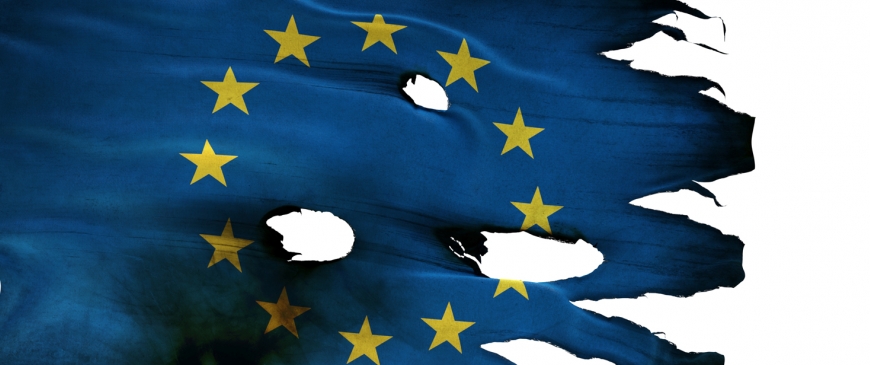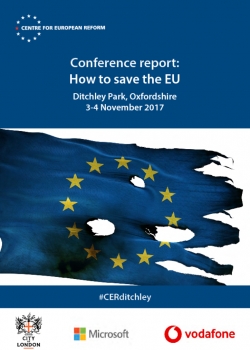
Conference report: How to save the EU
November’s conference, which brought together 50 leading economists, political scientists and experts on the EU, discussed ways to save the EU from nationalist and populist forces. Britain had voted to leave the EU in 2016; Poland and Hungary were now led by governments who were chipping away at the rule of law and the norms of liberal democracy; and support for populist right-wing parties – and to a lesser extent, the populist left – was on the rise in both Western and Eastern Europe. These developments raise many questions. Which social groups within the EU have lost confidence in it and why? What does the backlash against liberalism across Central and Eastern Europe (CEE) mean for the Union? Is the EU the answer to globalisation or is it hampering member-states’ ability to deal with it? Can the EU help foster an inclusive European identity, allowing it both to absorb inflows of people from poorer countries and to let national and regional identities flourish? Could the euro yet become a force for closer political integration in the EU?
Most participants agreed that the backlash against the EU – or liberalism more broadly – was not solely down to poor economic performance. Though unemployment and job insecurity did contribute to support for populism, identity and immigration were at least as important. The two also interacted in complex ways, in part reinforcing each other, and were hard to disentangle empirically. Anti-EU sentiment was also as much about hostility towards elites as it was about European integration. Support for populist parties was not obviously driven by age: the young were anti-populist in some countries, such as Britain, but voted for populist parties in large numbers in others, like Italy. A unifying theme seemed to be a sense of insecurity, resentment of elites and illusions about life outside the European Union. The complexity of the EU’s machinery and laws, its recent policy failures, and the inchoate benefits of the Union also made it an easy target for populists.
The complexity of the EU’s machinery, its recent policy failures, and the inchoate benefits of the Union makes it an easy target for populists.
There was broad consensus that the EU had the potential to be a force for good in the globalisation process, both internationally and in protecting (or at least managing) the repercussions for its citizens. But participants also agreed that the EU often fell short of that potential. Many people at the conference voiced concern that the EU was not doing enough(or was not given the mandate) to fight the negative effects of economic integration, such as the increasing concentration of benefits in certain regions, or tax competition, which citizens rightly perceived to be unfair. Some also argued there was untapped potential to integrate more closely while creating more equitable growth at the same time. On a global level, the EU did have the power to shape globalisation’s rules but was not using that power effectively.
Most participants thought the illiberal backlash in Central and Eastern Europe was of great concern, with Poland seen by many as the biggest problem, mainly because of its size. But the reason for the backlash was controversial. Some argued that economics explained at least part of it, as solid GDP growth had been faster than the growth in living standards: much capital was foreign-owned in these countries, and a sizeable chunk of profits were repatriated to Germany and elsewhere. Central and Eastern Europe’s electorates viewed their countries to be rule-takers, not rule-makers in the EU, and they deemed the single market to be biased in favour of the Western member-states. Some participants argued CEE countries needed strategies to create more high-paying jobs, to make the economy work for their citizens. The risk for Europe was not so much an exit of any of these countries, but a de facto exit from the values and rules of the EU. Some argued that treating CEE countries as second-tier member-states was poisonous, as was lecturing them. Offering Poland a seat at the top table was crucial, said one. But most important, argued many, was to show that Europe fights on the side of average citizens, for example against corruption, in order to support the pro-European, liberal sections of CEE countries. There was no consensus on whether EU funds should be made conditional on democratic principles and the rule of law.
Ditchley conference participants agreed that the eurozone was not about to undertake big reforms.
Participants agreed that the eurozone was not about to undertake big reforms. Some argued that it was futile to pretend otherwise and may in fact help the anti-EU cause. But others countered that cautious steps towards further integration within the eurozone were possible, and desirable. The conference’s economists did not agree that re-nationalising fiscal policy was a good idea, especially the restructuring of public debt within the eurozone. While many saw the political benefits, the economics of national discretion in fiscal policy with a common monetary policy did not add up. The euro had proved to be a source of disintegration in the EU between euro-ins and euro-outs, with one economist saying that the euro could only become a source of integration if governments overcame their current zero-sum thinking on economic policy.
Migration from outside the EU is bound to increase rather than subside, with Africa being the main challenge in future decades.
Populists had made migration a central issue, and many argued that migration from outside the EU was bound to increase rather than subside, with Africa being the main challenge in future decades. The debate heated up when it came to the economic benefits of migration, with some forcefully arguing that the benefits had been empirically demonstrated, and the academic debate had been won, but not the public debate. This led the conference to discuss ways to improve the debate about migration, and whether immigration from outside the EU could be integrated into a European narrative. There was consensus that being empirical about the facts was best, but politically unlikely to be of much help. But most agreed that the way in which politicians and the press framed migration was important, as the different perceptions of migration in European countries showed. Some argued that there was scope for the EU to act, such as in Africa or to better manage the influx of migrants. As one participant put it, it was not immigration per se that worried many, but the sense that it was uncontrolled and unlimited.


Comments